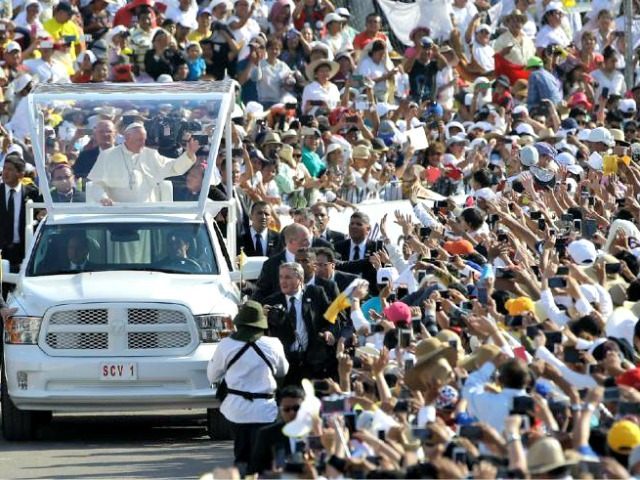The famous Peruvian economist Hernando de Soto has written an public letter to Pope Francis, suggesting that the pontiff tell Donald Trump that the world needs more walls, not fewer walls, if we are truly going to help the world’s poor.
Writing in Fortune magazine, De Soto, a hero of free-market advocates and the author of the award-winning 2000 bestseller The Mystery of Capital, does not shy away from giving advice to Pope Francis, suggesting that in order to achieve his goal of helping the indigent to emerge from poverty, a greater protection of property rights is essential.
De Soto, who has successfully debated iconic left-wing economists like Jeffrey Sachs and Joseph Stiglitz, has been an outspoken advocate of a sturdier rule of law, and especially property law, in countries that are plagued by high poverty levels.
The economist notes that 5 billion of the world’s 7 billion people don’t hold legal title to the property that they own, and so they lack the legal property rights required “to reside, own assets or do business in their own or any other country.”
This is in large part why so many people of the world can do little to improve their economic status, de Soto argues, since legitimate property owners “will struggle to have access to credit or the ability to raise capital since borrowers typically need to pledge some kind of property in exchange.”
Despite his conservative credentials, De Soto has won praise from across the aisle, from Margaret Thatcher to Koffi Annan. Bill Clinton famously called de Soto “the world’s greatest living economist” and Jack Kemp said he deserved to win the Nobel Peace Prize.
In his gentle advice to Pope Francis, de Soto said he “should challenge the Mexican government to improve property rights for owners of the country’s 10 million urban homes, 137 million hectares and 6 million businesses,” since most Latin American countries “have yet to document the property rights of their own people.”
So rather than speak about border walls, de Soto encourages, Pope Francis should “publicly defend the universal right of all people – sanctioned by the U.S. Constitution and the Universal Declaration of Human Rights – to enclose, defend and develop property borders inside their countries, so that they don’t have to migrate to America to get them.”
Since Donald Trump has built a fortune by carefully documenting and enclosing property, de Soto reasons, and putting it to its highest valued use, Pope Francis should press him to ensure the same possibility for others, because when people have legally documented property and make deals according to accessible laws, they in turn follow the rules since the law serves them.
Thus the property crisis and the immigration crisis walk hand in hand.
In defense of walls, de Soto points out that all living systems — whether created by God or organized by man — originate and operate only in encapsulated spaces. “Cells, molecules, body organs, computers or social groups — each and every one — is contained and constrained within a boundary, whether it is a membrane, an epidermis, a wall, or a legal property right,” he says.
If the poor knew that their property—their small businesses, homes, and intellectual property—was defended by the rule of law, they would have an invaluable tool to lift themselves out of their condition and the motivation to work to build an estate protected by a “wall” of law.
De Soto ends his essay appealing to the Pope to instruct Vatican intellectuals “to not only ask why the few have so much, but also why the many have so little.”
Follow Thomas D. Williams on Twitter

COMMENTS
Please let us know if you're having issues with commenting.